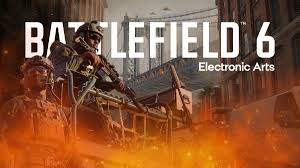The largest leveraged buyout in history, Electronic Arts will go private in a $55 billion all-cash deal spearheaded by Silver Lake, Jared Kushner’s Affinity Partners, and Saudi Arabia’s Public Investment Fund.
This is a high-stakes bet that one of the most recognizable publishers in gaming can grow more quickly off Wall Street.
EA reached a final deal that gives owners $210 in cash per share and values the company at roughly $55 billion.
100% of EA will be purchased by the Saudi PIF, Silver Lake, and Affinity Partners consortium; PIF will retain its approximately 10% stake by rolling those shares into the new private business instead of cashing out.
About $36 billion in stock and $20 billion in committed debt from JP Morgan make up the financing, with $18 billion anticipated at closing.
The board authorized the deal, and pending shareholder and regulatory clearances, the completion is scheduled for the first quarter of fiscal year 2027.
After closing, EA will delist, although its Redwood City headquarters will remain, and Andrew Wilson will continue to serve as CEO.
According to Dealogic, the deal would become the largest leveraged buyout in history if it is finalized, surpassing TXU’s 2007 buyout.
“We are privileged to invest and collaborate with Andrew, an exceptional CEO who has doubled revenue, nearly tripled EBITDA, and fueled a fivefold rise in market capitalization throughout his tenure,” stated Silver Lake Co-CEO Egon Durban.
According to Jared Kushner of Affinity Partners, EA’s capacity to “create iconic, lasting experiences” has led him to become a lifelong fan who “now enjoys them with his kids.”
Founded in 1982 by Trip Hawkins, a former marketing director at Apple, and initially backed by Kleiner Perkins and Sequoia, Electronic Arts has been one of Silicon Valley’s oldest gaming companies.
Its library includes shooters like Battlefield, The Sims, and sports games like Madden and FIFA (now FC).
The company’s shares fell to a 17-year low earlier this year when it warned of a decline in yearly net bookings, primarily due to issues with its Global Football division.
EA is one of the most sought-after assets in gaming since it offers buyers a unique combination of recurrent revenue and cultural staying power.
After the 2008 financial crisis, when debt-heavy acquisitions like the $45 billion TXU takeover ultimately failed in bankruptcy, the last wave of massive buyouts subsided.
From Silver Lake’s $25 billion Endeavor merger to PIF’s $4.9 billion Scopely acquisition, today’s blockbusters rely more on sovereign wealth and equity-rich backers than on leverage.
The most audacious wagers in the sector are being fueled by deep finances rather than just borrowed funds.

















